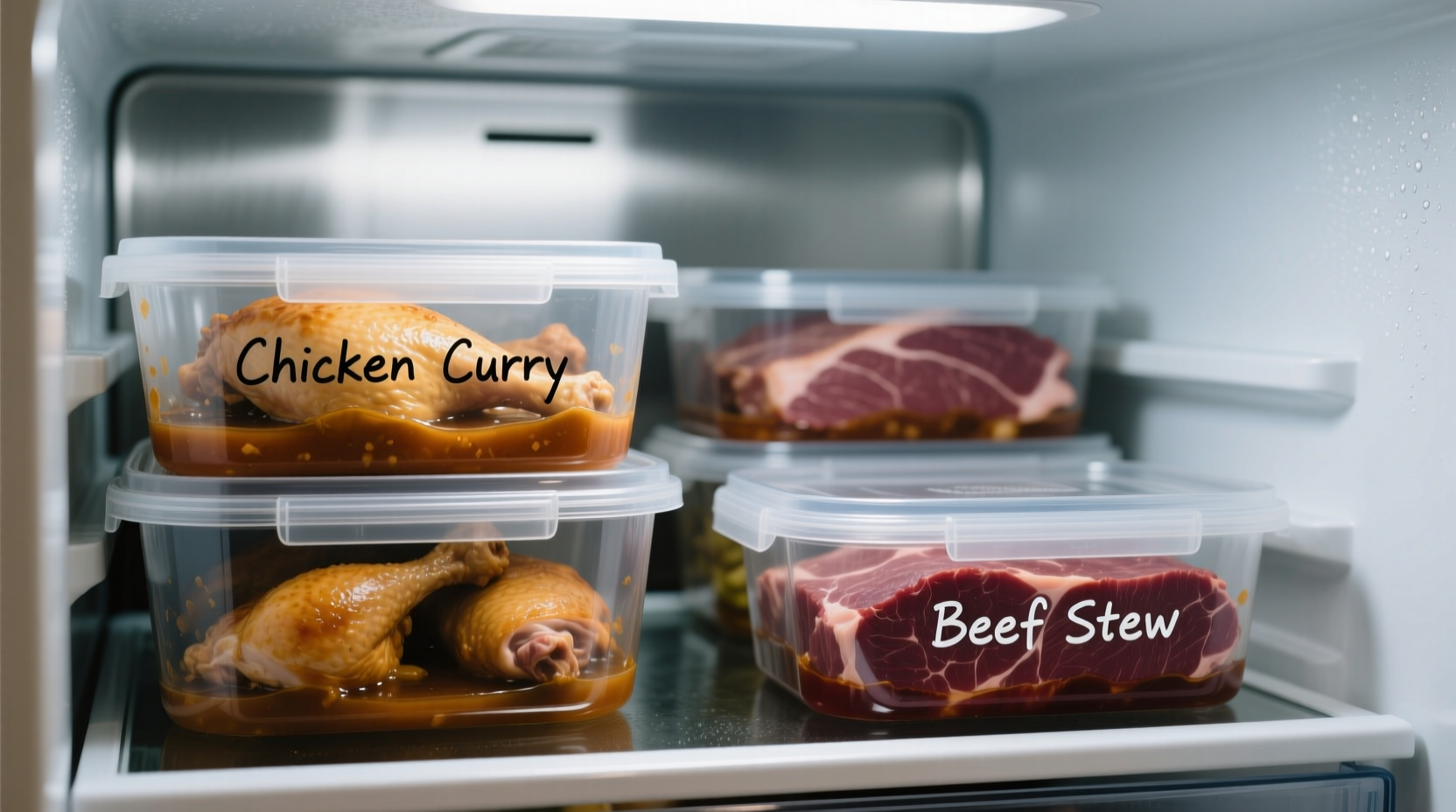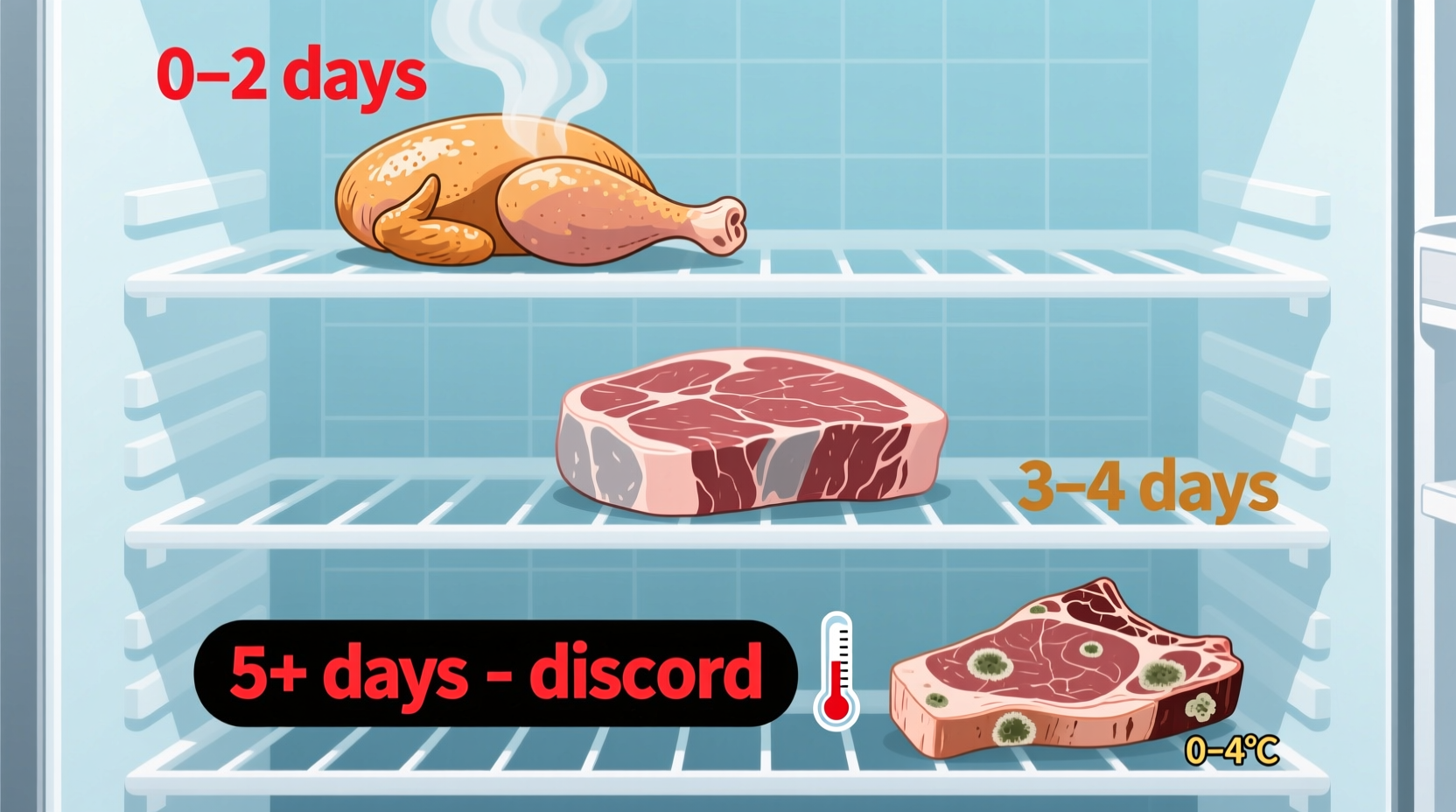Ever opened your fridge wondering if that leftover roast chicken is still safe to eat? You're not alone. Proper food storage prevents both food waste and foodborne illness - and knowing exactly how long cooked meat can stay in the refrigerator makes all the difference between enjoying delicious leftovers and risking food poisoning.
Why the 3-4 Day Rule Matters for Cooked Meat Safety
That seemingly harmless container of last week's pot roast could harbor dangerous bacteria like Salmonella or Listeria. The USDA's Food Safety and Inspection Service established the 3-4 day guideline based on extensive research into bacterial growth rates in cooked proteins. When refrigerated properly at 40°F (4°C) or below, most pathogens multiply slowly enough to keep food safe for this window.
"Many people don't realize that cooked meat enters what we call the 'danger zone' after four days," explains food safety expert Dr. Jane Collins from the FDA Center for Food Safety and Applied Nutrition. "Bacteria that cause foodborne illness double every 20 minutes between 40°F and 140°F - that's why proper refrigeration timing is critical."
| Cooked Meat Type | Refrigerator Storage Time | Freezer Storage Time |
|---|---|---|
| Chicken & Turkey | 3-4 days | 4 months |
| Beef, Pork, Lamb | 3-4 days | 2-3 months |
| Fish & Seafood | 3-4 days | 2-3 months |
| Meat Casseroles | 3-4 days | 2-3 months |
| Gravy or Meat Broth | 2 days | 2-3 months |
4 Critical Factors That Change Your Leftover Timeline
The standard 3-4 day rule assumes perfect conditions. Real-world variables can shorten this window significantly:
1. Refrigerator Temperature Accuracy
Not all refrigerators maintain consistent temperatures. The USDA recommends using an appliance thermometer to verify your fridge stays at 40°F (4°C) or below. A 2023 FDA study found 43% of home refrigerators operate above this critical threshold, accelerating bacterial growth.
2. Cooling Method Before Storage
Leaving cooked meat at room temperature for more than two hours before refrigerating creates ideal conditions for bacteria multiplication. For best results, divide large portions into shallow containers to cool faster - this simple step extends your how long cooked meat stays good in refrigerator timeframe by up to 24 hours.
3. Storage Container Quality
Airtight containers prevent cross-contamination and moisture loss. Glass containers with locking lids preserve freshness 20% longer than plastic wrap according to research published in the Journal of Food Protection. Always label containers with cooking date - don't rely on memory for how long is cooked meat good for in fridge.
4. Meat Type and Preparation Method
Certain proteins have shorter shelf lives. Ground meats spoil faster than whole cuts due to increased surface area. Dishes with sauces or gravy typically last slightly longer than plain cooked meats. The USDA specifically notes that cooked fish should be consumed within 3 days rather than 4.

When in Doubt: The 3-Point Spoilage Detection System
Before consuming leftovers, perform this quick safety check:
- Smell Test: Discard meat with sour, ammonia-like, or unpleasant odors. Note that some bacteria like Listeria don't produce noticeable odors.
- Texture Check: Slimy or sticky surfaces indicate bacterial growth. Properly stored cooked meat should maintain its original texture.
- Visual Inspection: Look for mold growth, unusual discoloration, or liquid separation that wasn't present when stored.
"If you're questioning whether cooked meat is still good, it's already past its prime," advises Antonio Rodriguez, culinary safety specialist. "Trust your senses but remember - some dangerous bacteria don't change appearance or smell. When uncertain about how long cooked chicken stays good in refrigerator, err on the side of caution."
Maximizing Leftover Freshness: 5 Proven Techniques
Extend your cooked meat's refrigerator life with these professional kitchen methods:
- Immediate Cooling: Place hot containers in ice baths before refrigerating to minimize time in the danger zone
- Vacuum Sealing: Removes oxygen that promotes bacterial growth, extending freshness by 1-2 days
- Acid Preservation: Adding vinegar or citrus juice to storage containers creates a less hospitable environment for bacteria
- Strategic Layering: Place meats in single layers rather than stacking to maintain consistent temperature
- Reheating Protocol: When reheating, bring to 165°F internally - this kills surface bacteria but doesn't extend the original storage timeline
Avoid These 3 Common Leftover Mistakes
Even with proper storage timing, these errors compromise food safety:
- Storing while piping hot: This raises the refrigerator temperature temporarily, affecting all stored foods
- Reusing storage containers: Always use clean containers for leftovers - never store directly in cooking pans
- Ignoring the 'sniff test' timeline: Don't wait until the 4th day to check - monitor daily for signs of spoilage
When Freezing Makes Sense for Longer Storage
If you won't consume leftovers within 3-4 days, freezing preserves quality and safety. Properly frozen cooked meat remains safe indefinitely, though quality declines after 2-6 months. For best results:
- Use freezer-safe containers or heavy-duty freezer bags
- Remove as much air as possible to prevent freezer burn
- Label with contents and date
- Thaw in refrigerator, not at room temperature
Remember that freezing doesn't extend the original refrigerator timeline - cooked meat that's been refrigerated for 4 days then frozen still carries the same bacterial risk when thawed.
Special Considerations for Meal Preppers
If you're batch-cooking proteins for the week, follow these guidelines:
- Portion immediately after cooking into single-serving containers
- Never mix freshly cooked meat with older leftovers
- Consume within 3 days for maximum safety (not 4)
- Consider acidic marinades which can extend freshness by 12-24 hours
The CDC reports that improper leftover handling causes approximately 1 million foodborne illness cases annually in the United States. Following these evidence-based practices significantly reduces your risk while minimizing food waste.











 浙公网安备
33010002000092号
浙公网安备
33010002000092号 浙B2-20120091-4
浙B2-20120091-4